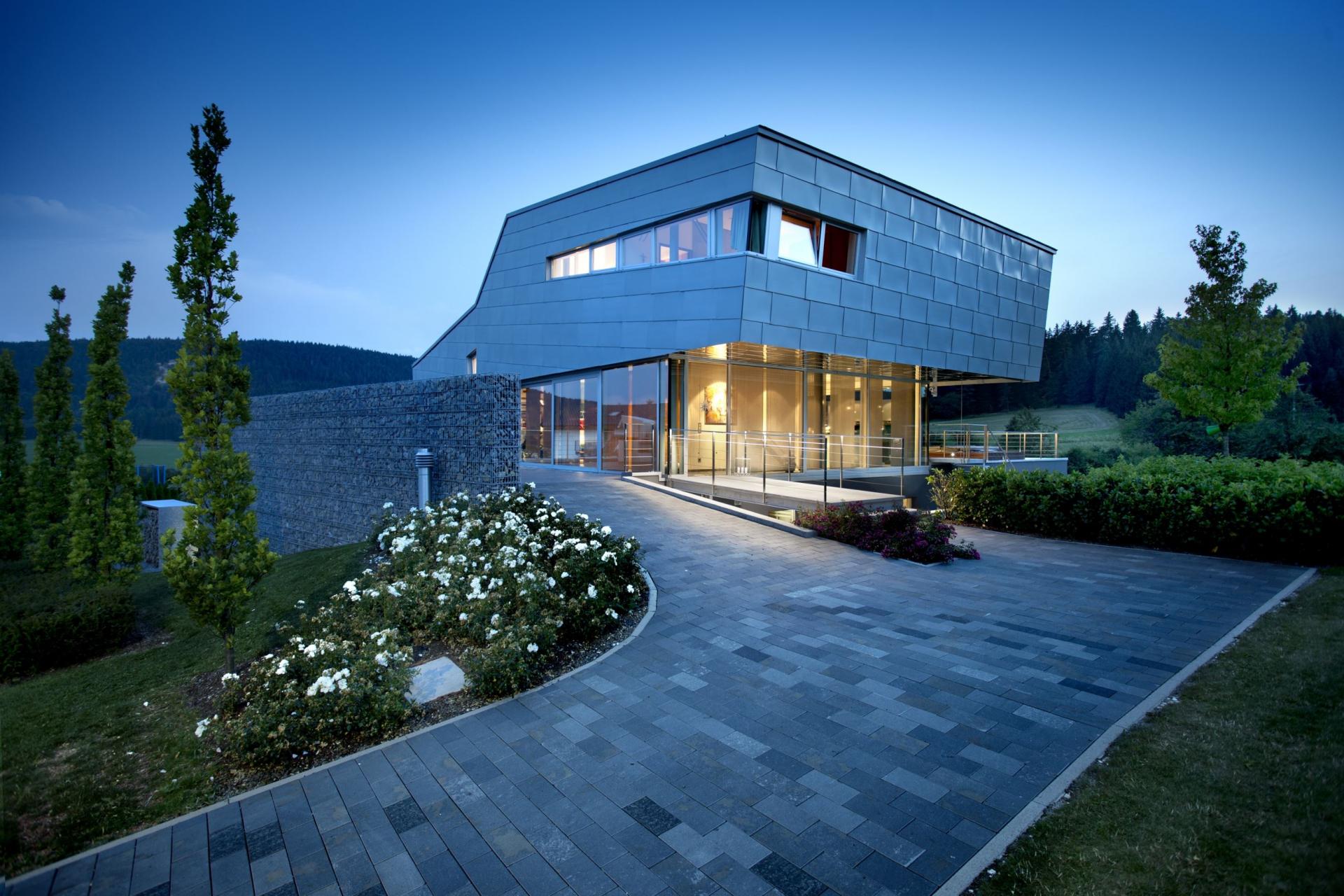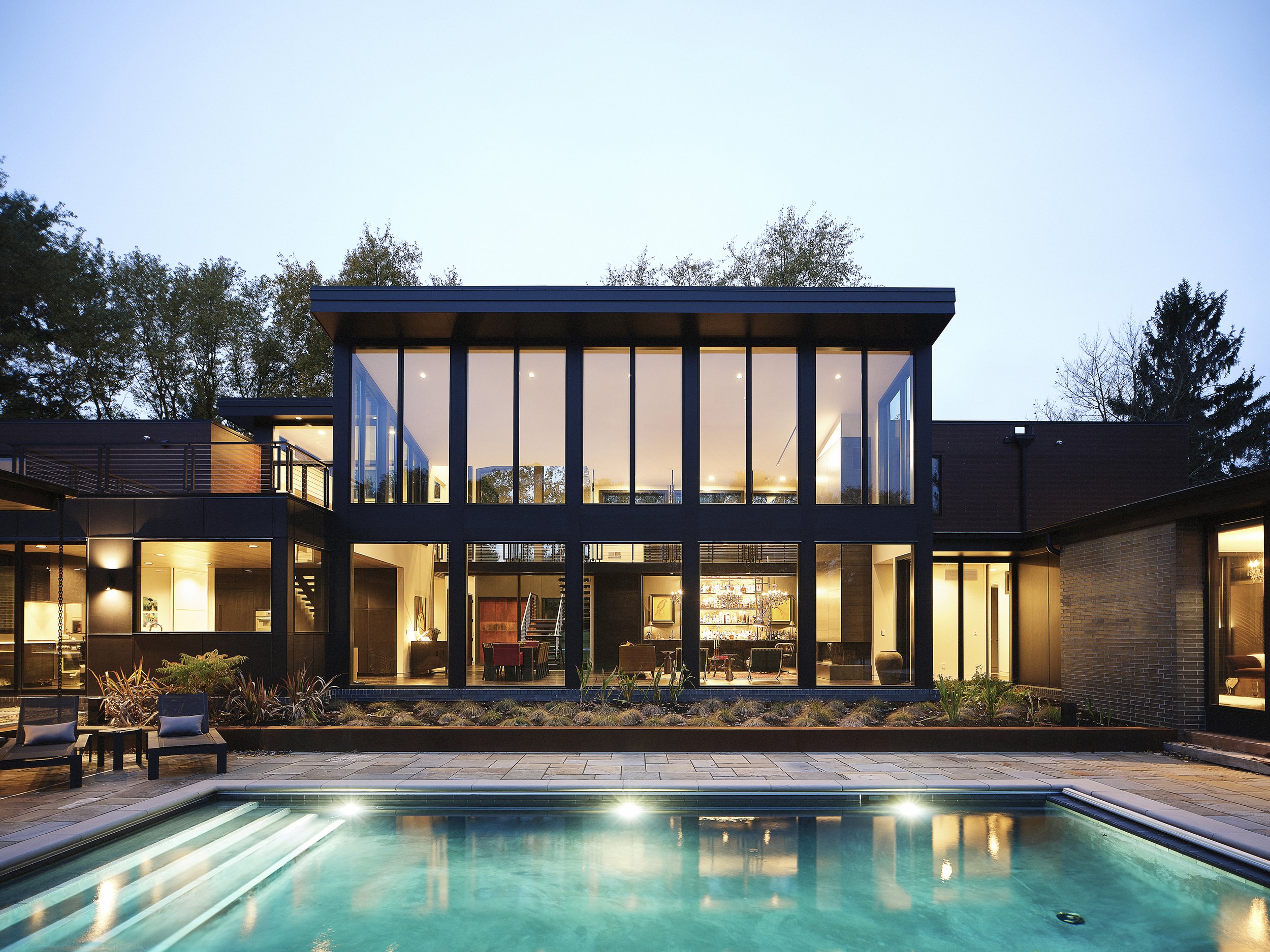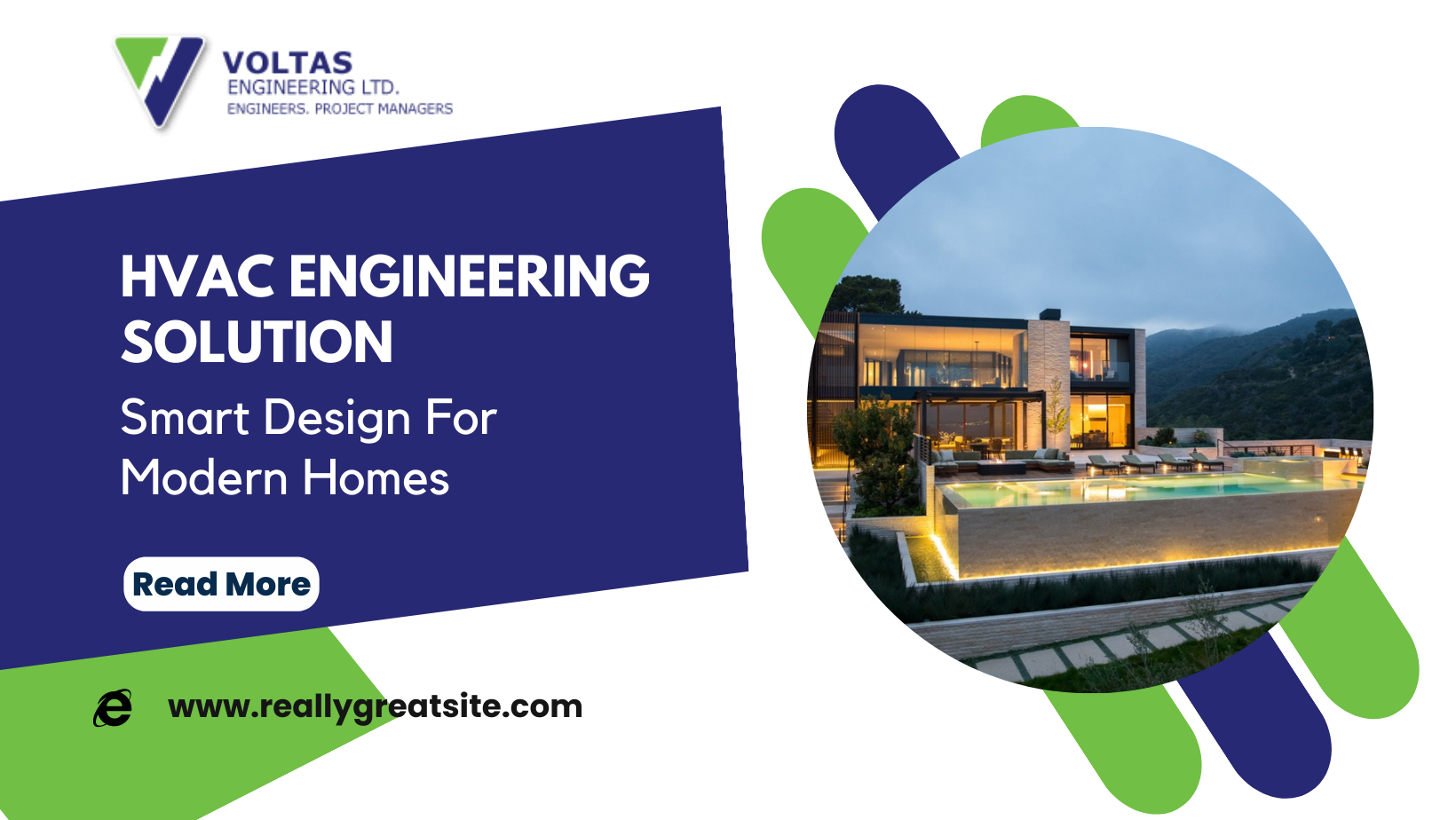As new trends and ideas have developed over time, so has the design of HVAC systems for both industrial and residential uses. Today, the desire for “green,” energy-efficient, and adaptable modern house plans has generated an exciting opportunity to combine multiple approaches to produce a truly original design for a house.
Designing, setting up, and maintaining HVAC systems are all parts of HVAC engineering. Modern technologies are used in smart HVAC design to produce pleasant, effective places. Area control, programmable thermostats, smart sensors, and networking are important features. For sensible design solutions that will guarantee a cozy, energy-efficient home for many years to come, speak with a skilled HVAC engineer in Surrey, BC.
A smart HVAC system saves time and ensures efficient cooling and heating systems in modern buildings. Smart heating, ventilation, and air conditioning (HVAC) system design and construction may also lessen the biggest domestic polluter.


What are Modern Smart Homes?
Modern smart buildings offer software solutions for sensing the environment, enabling better control and optimization of heating, ventilation, and air conditioning (HVAC) systems.
A smart home with HVAC uses technology to control its heating, ventilation, and air conditioning (HVAC) system, allowing homeowners to manage climate control remotely using a smartphone, tablet, or voice command. This system offers numerous benefits, including setting different temperatures for different rooms, automatically adjusting the temperature based on schedule or weather, receiving alerts if the system is not functioning properly, and saving energy by turning off the system when away. Smart HVAC systems also improve indoor air quality by monitoring humidity, CO2, and other pollutants. To choose a smart HVAC system, consider features such as remote control, schedules, geofencing, monitoring, and energy savings. With a wide range of brands and models available, you can find a system that fits your needs and budget.
Key Features of HVAC Technology For smart Modern Houses
Remote Control
Remote thermostat adjustments allow individuals to control indoor temperatures without physically visiting the device, reducing energy loss. For everyday use, thermostats with programmable timers can also reduce energy and utility costs.
Wi-Fi Connection
House design with smart HVAC systems and Wi-Fi connections, reducing carbon footprints, and integrating energy-efficient appliances.
Wi-Fi is used to connect HVAC systems to smart speakers, enabling voice activation features. Using associated devices and identification skills, people can verbally control indoor temperatures. Attaching thermostats to motion detection sensors may also improve the efficiency of the devices.
Motion Detection Sensors
By incorporating sensors into the design of the HVAC system, you can monitor movements in every area of your house and change the temperature to reduce wasteful energy loss. When a system detects low activity across all zones, it can cut off the energy to the entire gadget, erasing emissions.
Smart Air Purifiers
By eliminating all impurities and lowering infections by 99%, air purifiers increase the efficiency of smart HVAC systems.
The additives outlast competitive products, which eventually leads to a reduction in solid waste from municipalities. Homeowners who produce less trash are more environmentally sustainable. By minimizing the spread of airborne diseases, smart filters help safeguard inhabitants’ health.
Weather Prediction Applications
You can smartly create a thermostat that incorporates weather forecasting features while enhancing energy efficiency. The apps can get current weather information and modify indoor temperatures to reduce the system’s reliance on electricity. Your HVAC system becomes compatible with a variety of applications once it establishes a Wi-Fi connection.
Ventilation
The use of whole-house ventilation in smart HVAC systems enhances air quality by bringing in fresh air from the outside and expelling stale air, therefore lowering pollutants, allergies, and dangerous compounds. With less opportunity for mold and mildew formation, comfort and health are improved.
Linking PV Panels and HVAC Systems
Smart HVAC systems can be connected to solar power sources, generating emission-free electricity through photovoltaic panels. This direct current, collected by transfer wires, can eliminate heating and cooling emissions.
Benefits of HVAC Technology For smart Modern Houses
Increased Comfort
Even if you want a different temperature in each space, smart HVAC systems can keep your house at a pleasant temperature. Designated heating and cooling makes it feasible for you to independently regulate the temperature in various parts of your house. In order to ensure that you always return home to a comfortable environment, smart thermostats may also learn your routines and modify the temperature accordingly.
Energy Efficiency
By automatically regulating the temperature depending on your schedule and preferences, smart HVAC systems may assist you in saving cash on your energy costs. For instance, the thermostat may automatically turn down the temperature if you are going away over the weekend. This will save electricity. Moreover, smart HVAC systems may be set up to benefit from the heat of the sun throughout the summer and, in winter, from the coldness of the winter.
Lessening of Environmental Effects
By consuming less energy, smart HVAC systems may help you lessen your influence on the environment. This is because they are made to be more effective than conventional HVAC systems. To further lessen their influence on the environment, smart HVAC systems may also employ renewable energy sources like solar energy.
Enhanced Health
The air quality in your home may be improved with whole-house ventilation, which is good for your health. This is due to the fact that whole-house ventilation eliminates stale air from within while also bringing in fresh air from the outside. It could aid in lowering the level of pollutants, allergens, and other dangerous elements in the air.
Extended Lifespan
In general, smart HVAC systems are more reliable and require less upkeep than conventional HVAC systems. This is because they are built with clever features that can aid in preventing issues from arising. Hence, intelligent HVAC systems have a longer lifespan and ultimately cost less to maintain.
Conclusion
Smart HVAC technologies are being deployed in various industries, including enterprise, commercial, industrial, and residential buildings. These technologies aim to improve building efficiency, reduce energy costs, and enhance security and occupant satisfaction. Smart buildings can use sensors to detect occupants in a room, allowing for automatic temperature adjustments. These technologies are also integrated into security and building access systems. For instance, a smart building can reduce energy costs by detecting the number of occupants in a room and automatically turning on cool air if a full conference room is detected.
Finally, Smart HVAC systems are being used in a variety of sectors, including workplaces, skyscrapers, apartment complexes, and multi-tenant buildings. Automatic temperature changes, energy savings, and general improvements to building effectiveness and enjoyment are all made possible by these technologies.


